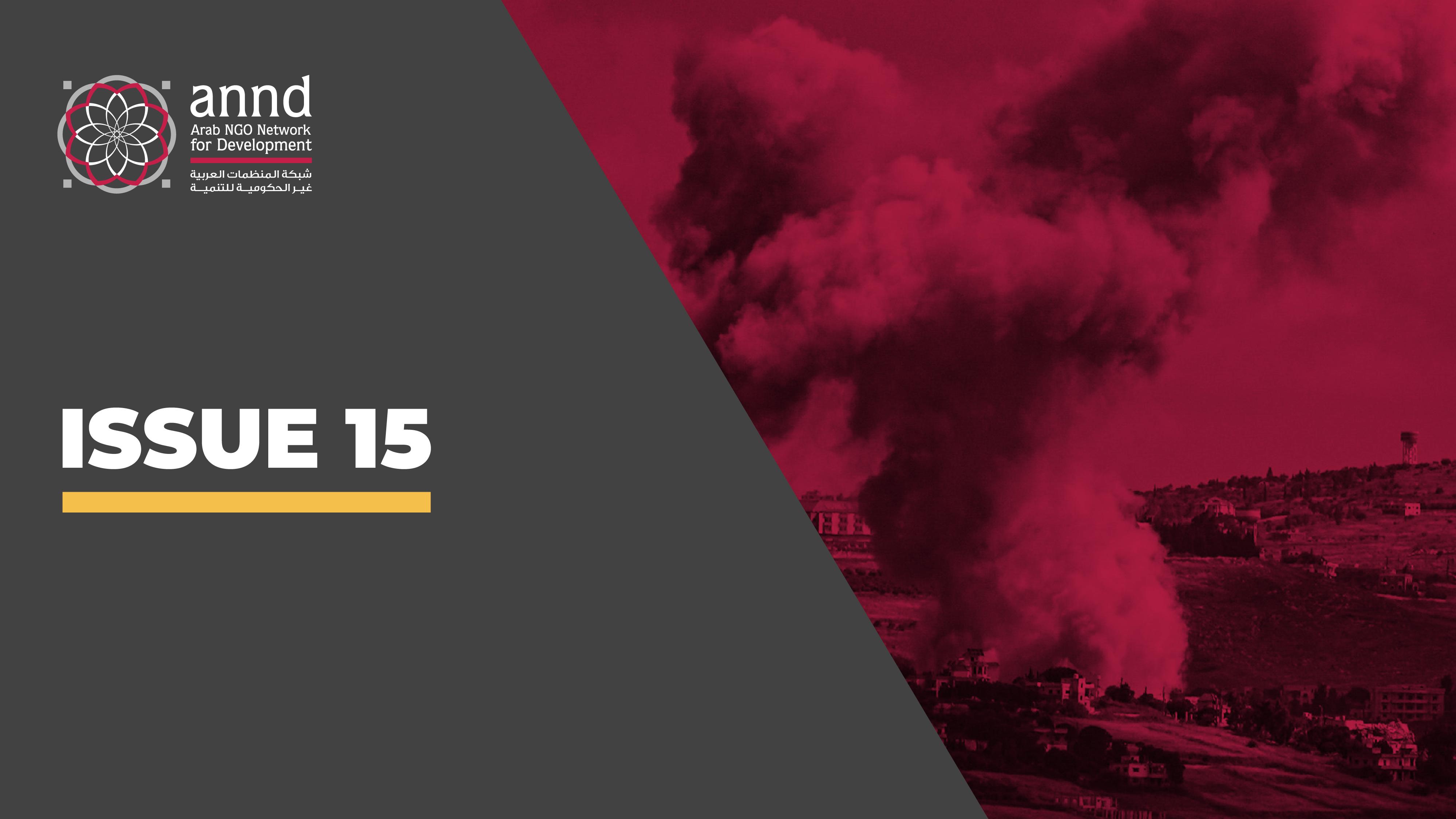
A Region on Fire
Issue 15 - October 11, 2024
Israel Commits Four International Crimes
On the same day that Israeli newspapers declared Gaza officially a secondary battlefield for the Israeli army for the first time since October 7th, UN human rights experts reported that Gaza has turned into a barren land filled with rubble and human remains after a year of war. This war witnessed acts of genocide, ethnic cleansing, and collective punishment against Palestinians, making Gaza the worst humanitarian crisis since the end of World War II.
In Lebanon, concerns about mass displacement began to grow. Amnesty International expressed these concerns, accusing Israel of issuing "misleading" warnings to residents to evacuate areas in southern Lebanon and the southern suburbs of Beirut. Amnesty warned that these evacuations could be designed to forcibly displace people from the border region amid the war with Hezbollah. The organization stated that it had analyzed more than 12 evacuation warnings and maps in southern Lebanon and the southern suburbs, noting that the warnings included "misleading maps" and were issued very shortly—sometimes just 30 minutes—before airstrikes, often at midnight and through social media, while many residents were asleep. Amnesty noted that a quarter of Lebanon's land is now under Israeli evacuation warnings, raising fears of a planned mass displacement. The organization also stressed that these warnings do not release Israel of its obligations under international humanitarian law to never target civilians and to take all possible measures to minimize harm.
Battlefield Developments in Lebanon
After a violent night of massacres in Beirut and the Beqaa region without prior evacuation warnings, the Israeli army continued its airstrikes on various parts of Lebanon. The Israeli army targeted a Lebanese army post in the town of Kafra in the south, killing two soldiers and injuring three others, according to a statement from the Lebanese Army Command.
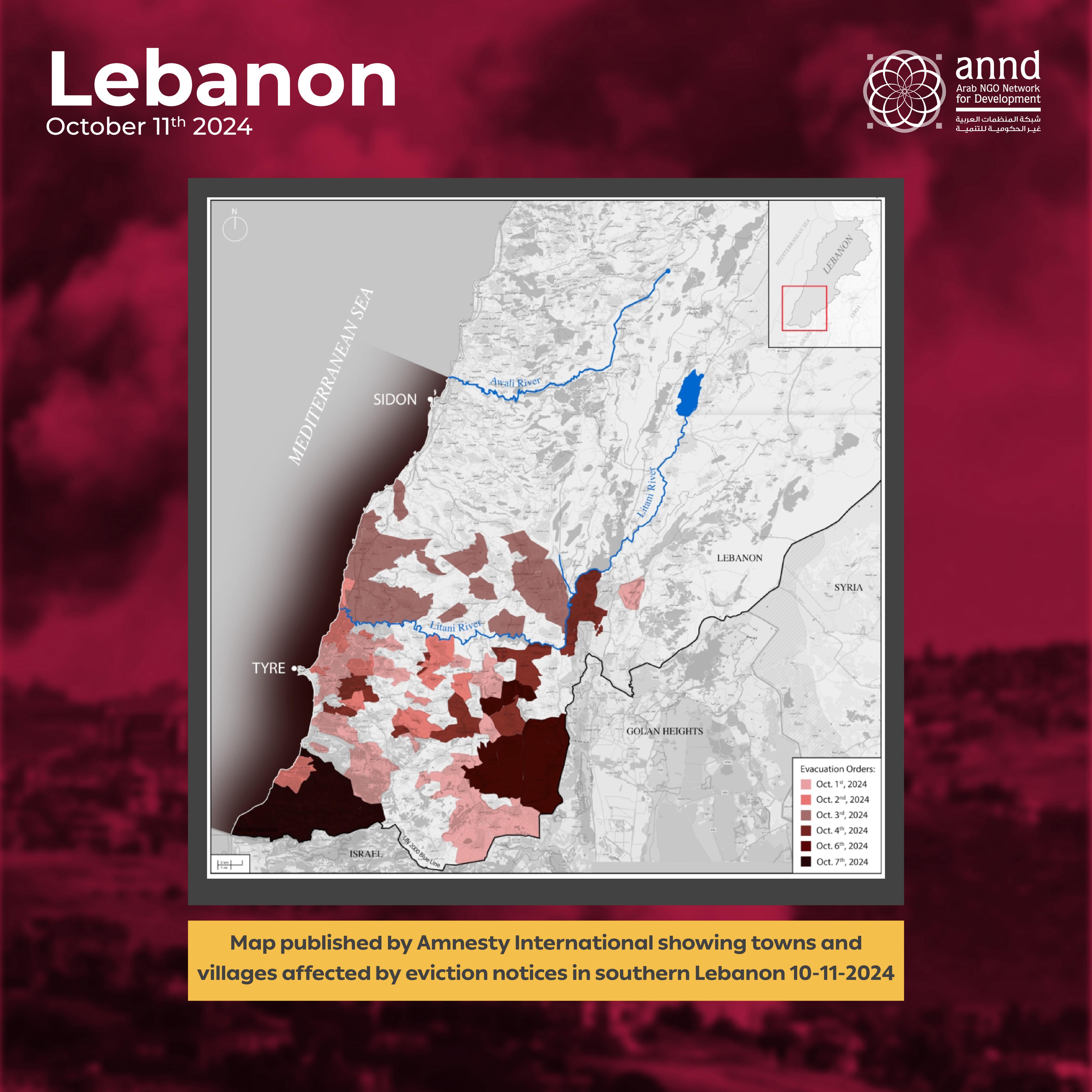
Over the past 24 hours, 57 airstrikes and shelling were recorded in various areas of Lebanon, mainly focusing on the south, the southern suburbs of Beirut, and the Beqaa, bringing the total number of attacks since the start of the aggression to 9,588.
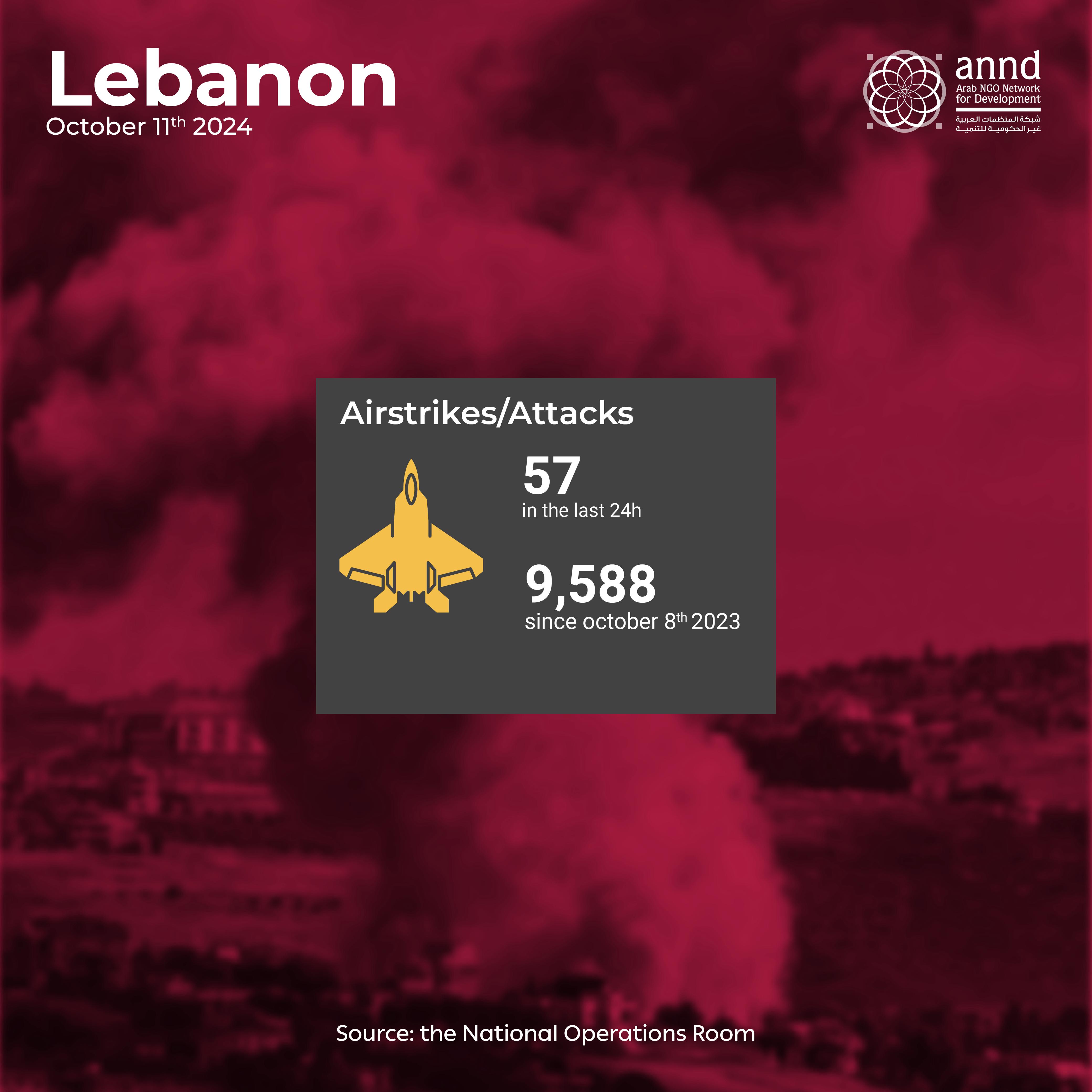
The Lebanese Ministry of Health reported that the death toll over the past 24 hours reached 60, with 168 injured, raising the total number of casualties since the start of the aggression to 2,229 martyrs and 10,380 wounded.
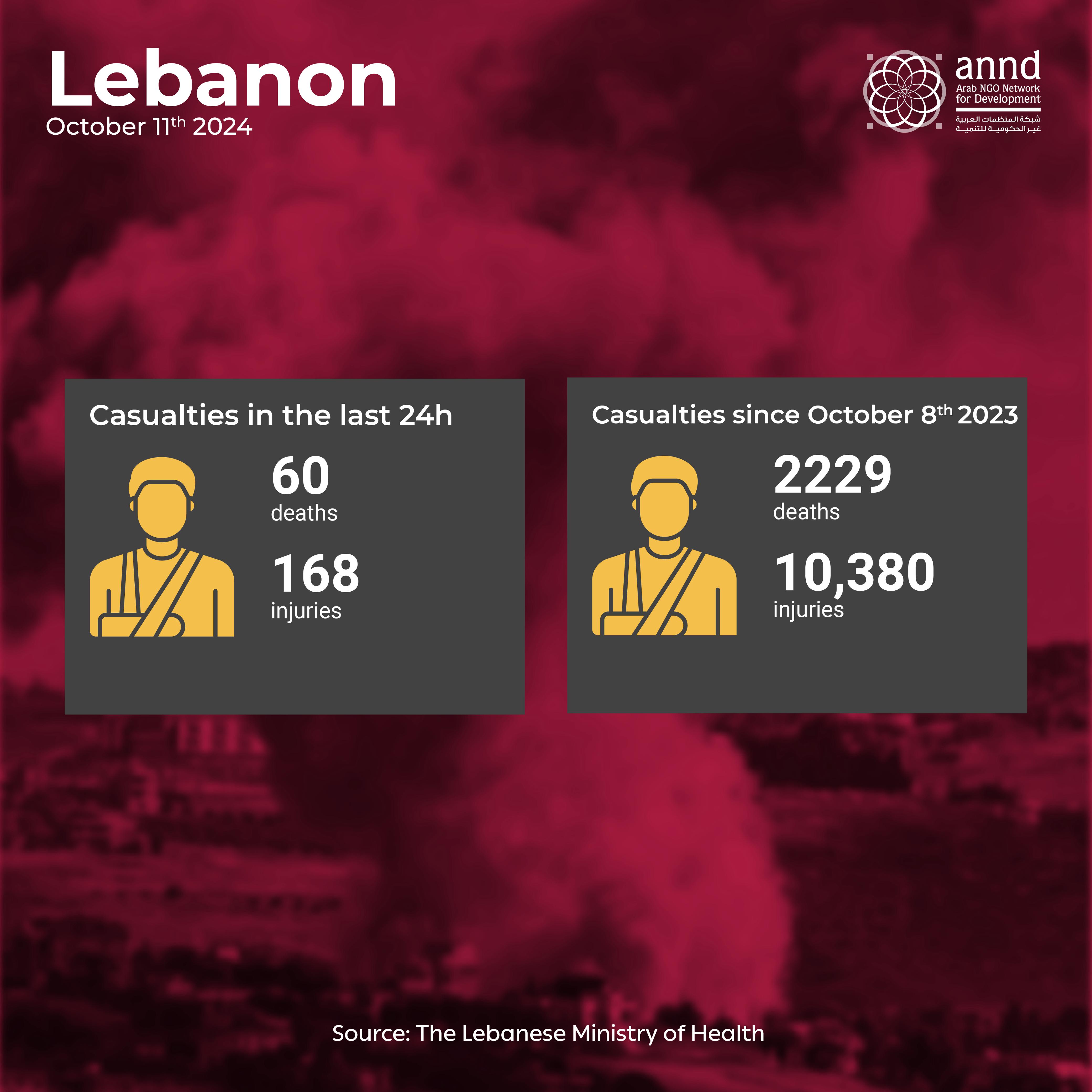
For the second time in two days, Israel fired artillery at the main entrance of the "UNIFIL" command center in Naqoura on Friday morning, causing damage at the entrance. Israel also targeted one of UNIFIL’s towers on the road linking Tyre to Naqoura near a Lebanese army checkpoint, injuring soldiers from the Sri Lankan battalion. UNIFIL forces remained in their positions and refused to evacuate as demanded by the Israeli army.
Political Positions in Lebanon
The Speaker of the Lebanese Parliament received a 40-minute phone call from the U.S. Secretary of State, during which they discussed the current situation in Lebanon.
Prime Minister Najib Mikati emphasized that bombing civilians is unacceptable, reaffirming Lebanon’s commitment to its sovereignty and the full implementation of UN Security Council Resolution 1701, calling on the international community to pressure Israel to comply. Mikati stated that Lebanon has submitted a request to the UN Security Council to issue a resolution for a ceasefire in Lebanon. He also stressed the need to elect a president acceptable to all and condemned the attacks on UNIFIL forces.
The Ministry of Foreign Affairs and Emigrants condemned the systematic and deliberate targeting by the Israeli army of the United Nations Interim Force in Lebanon (UNIFIL).
Lebanon's representative to the UN Security Council, Ambassador Hadi Hachem, reiterated Lebanon’s commitment to implementing UN Resolution 1701 and the joint French-American initiative calling for a 21-day ceasefire. He emphasized that diplomatic solutions are the only way to end Israel’s war and aggression.
Hezbollah's media relations officer, Mohammed Afif, accused Israeli military censorship of hiding battlefield losses and internal casualties, stating that the attack on Tel Aviv is just the beginning, and Israel has only seen a fraction of Hezbollah’s capabilities. He added, "What deters the enemy from its crimes is the resistance, not the international community, and the attack on the UN and its headquarters is condemned”. The symbolism of holding the press conference amidst the rubble in the southern suburbs is a message to raise the morale of Hezbollah's base, which is facing destructive bombardment. It also highlights the ongoing duality between Lebanon's official stance and Hezbollah.
Around 700,000 Displaced People in Need of Safe Shelters
The Regional Director for the Middle East and North Africa of the International Organization for Migration (IOM) visited Lebanon and expressed concern over the limited support provided to the hundreds of thousands displaced by Israel's ground and air assault on Lebanon. He emphasized the urgent need to identify safe locations for sheltering displaced people, noting that many existing shelters are overcrowded, according to field assessments.
While hundreds of thousands have fled across the border to Syria, IOM’s Regional Director Mr. Othman Belbeisi noted that the organization has not yet observed a significant increase in the number of people attempting to flee to other countries by sea, possibly due to “the high risks associated with such journeys in the current situation.”
The Head of Syndicate of Food Importers assured that "food prices remain stable, and there is an abundance of food supplies in Lebanon, with no shortages of any goods." He noted that food imports continue through Beirut Port and Rafic Hariri International Airport, meaning that Lebanon’s food stockpile will last more than two months. However, the costs have increased due to increased insurance and transportation prices.
According to the Disaster Risk Management Unit, 1,032 shelters have been opened to date, with 837 reaching full capacity. So far, 187,000 displaced people (39,300 families) have been registered in shelters listed by the National Committee for the Coordination of Crisis Response Operations.
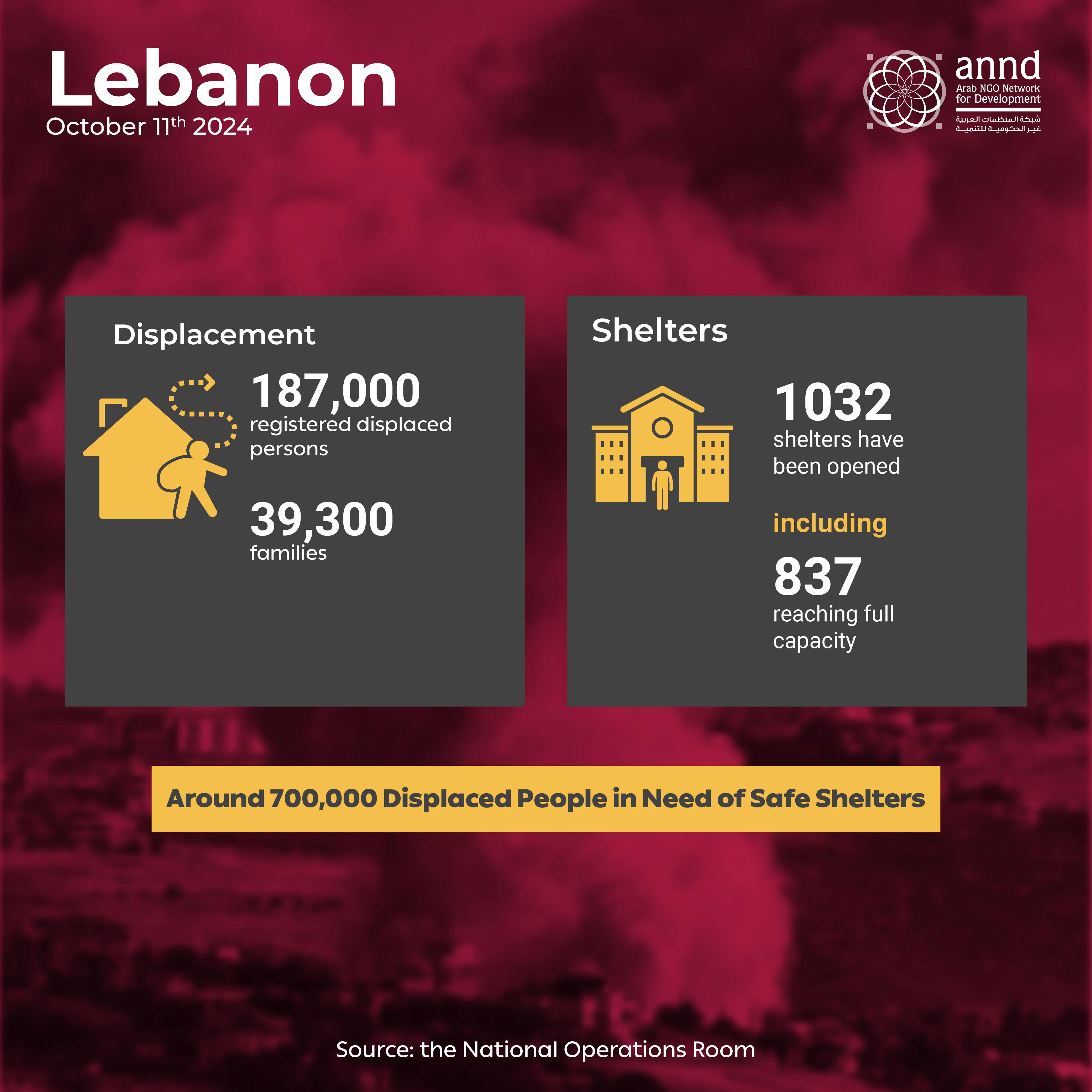
The Ministry of Social Affairs confirmed that financial aid distribution to beneficiaries of the "Aman" program will begin on October 15th, covering 93,626 Lebanese families, and will take five days to complete. Additionally, aid for 74,500 Lebanese families enrolled in the "National Program to Support the Poorest Families" via the Ministry’s card will begin on October 18th, also taking five days due to the large number of beneficiaries.
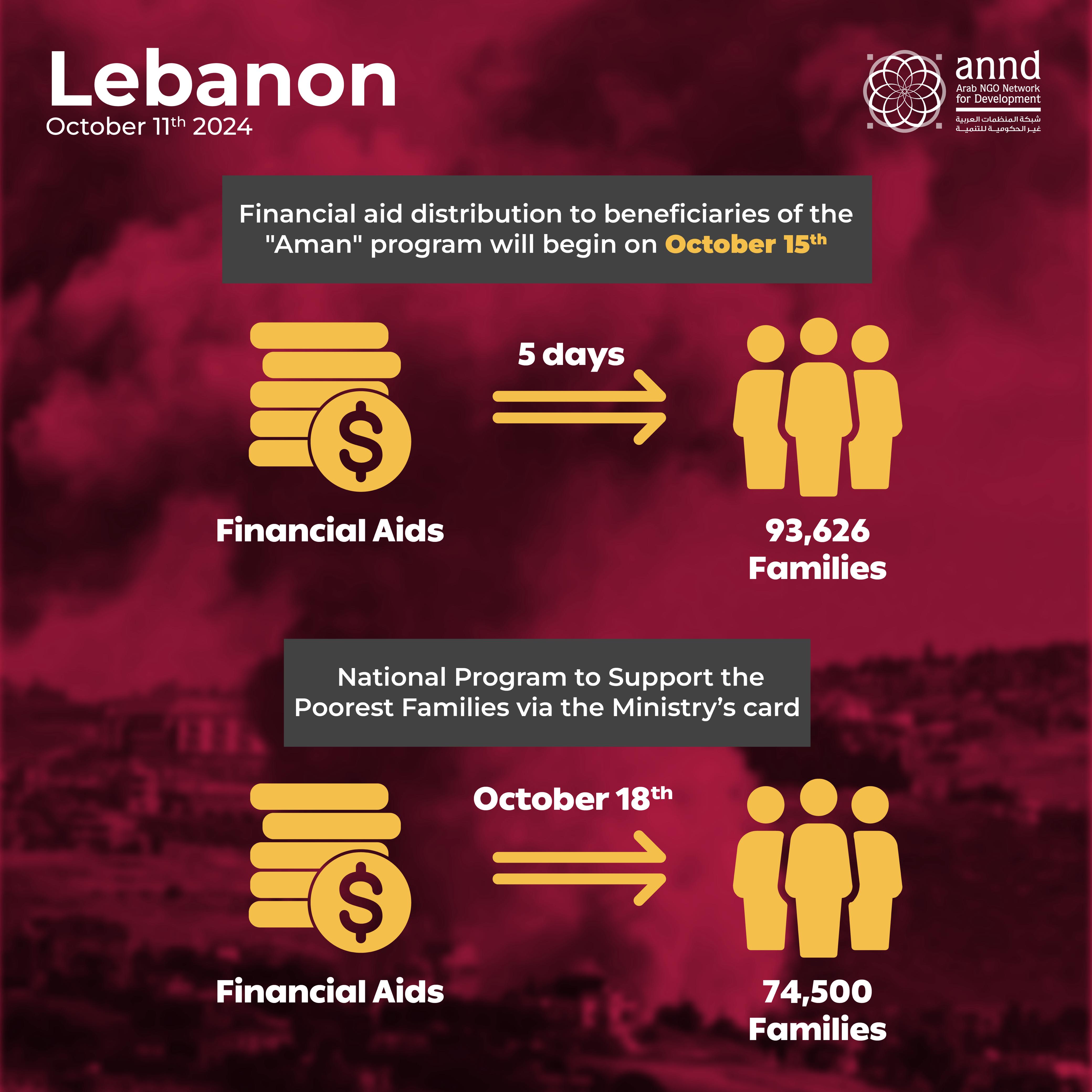
International Developments
The leaders of the " MED9” leaders met in Cyprus to discuss Middle East tensions, focusing on "de-escalation efforts" among countries particularly affected by regional instability, according to the French presidency.
Spain joined France in calling for an end to arms exports to Israel after its Prime Minister urged the international community to halt weapons sales to Israel.
The U.S. Secretary of State reaffirmed ongoing diplomatic efforts in Lebanon, stressing the importance of electing a president. He noted that the U.S. supports Lebanon’s efforts to "assert itself" and take responsibility for its future.
According to the Pentagon, the U.S. Secretary of Defense discussed Israel’s operations in Lebanon with his Israeli counterpart, stating: “U.S. support for Israel’s right to defend itself against Iran, Lebanese Hizbollah, Hamas, the Houthis, and other Iran-backed terrorist organizations”.
A source from the "Quds Force" of Iran’s Revolutionary Guards revealed to "Al-Jarida" that Mohammad Reza Fallahzadeh has been appointed as the new “supervisor” of Hezbollah following the assassination of its Secretary-General, Hassan Nasrallah, in an Israeli airstrike on September 27th.
The Israeli army announced that the Chief of Staff and the head of the security agency conducted a security assessment in southern Lebanon on Thursday. Based on the assessment, it was decided to reinforce combat battalions for defensive tasks in the central command.
International condemnations of Israeli attacks on peacekeeping forces continued:
- UN Secretary-General António Guterres stated that such incidents cannot be tolerated as they violate international humanitarian law.
- France summoned the Israeli ambassador in Paris after attacks on UNIFIL sites, with President Emmanuel Macron condemning Israel’s deliberate targeting of UN forces in Lebanon.
- The Russian Foreign Ministry stressed that the Israeli army must refrain from hostile actions against peacekeeping forces.
- UNIFIL spokesperson Andrea Tenenti stated that peacekeeping forces are determined to stay in their positions despite Israeli attacks and evacuation orders from the Israeli army.
- Human Rights Watch called for a UN investigation into Israel’s attacks on UNIFIL.
Gaza: Coordinated Policy to Destroy Healthcare System
On the 371st day of the aggression on Gaza, Israel committed four massacres in various parts of the Strip over the past 24 hours, resulting in the deaths of 61 Palestinians and injuries to 231 others, according to the Ministry of Health in Gaza. Israel has also tightened its siege on the northern part of the Strip, particularly in Jabalia.
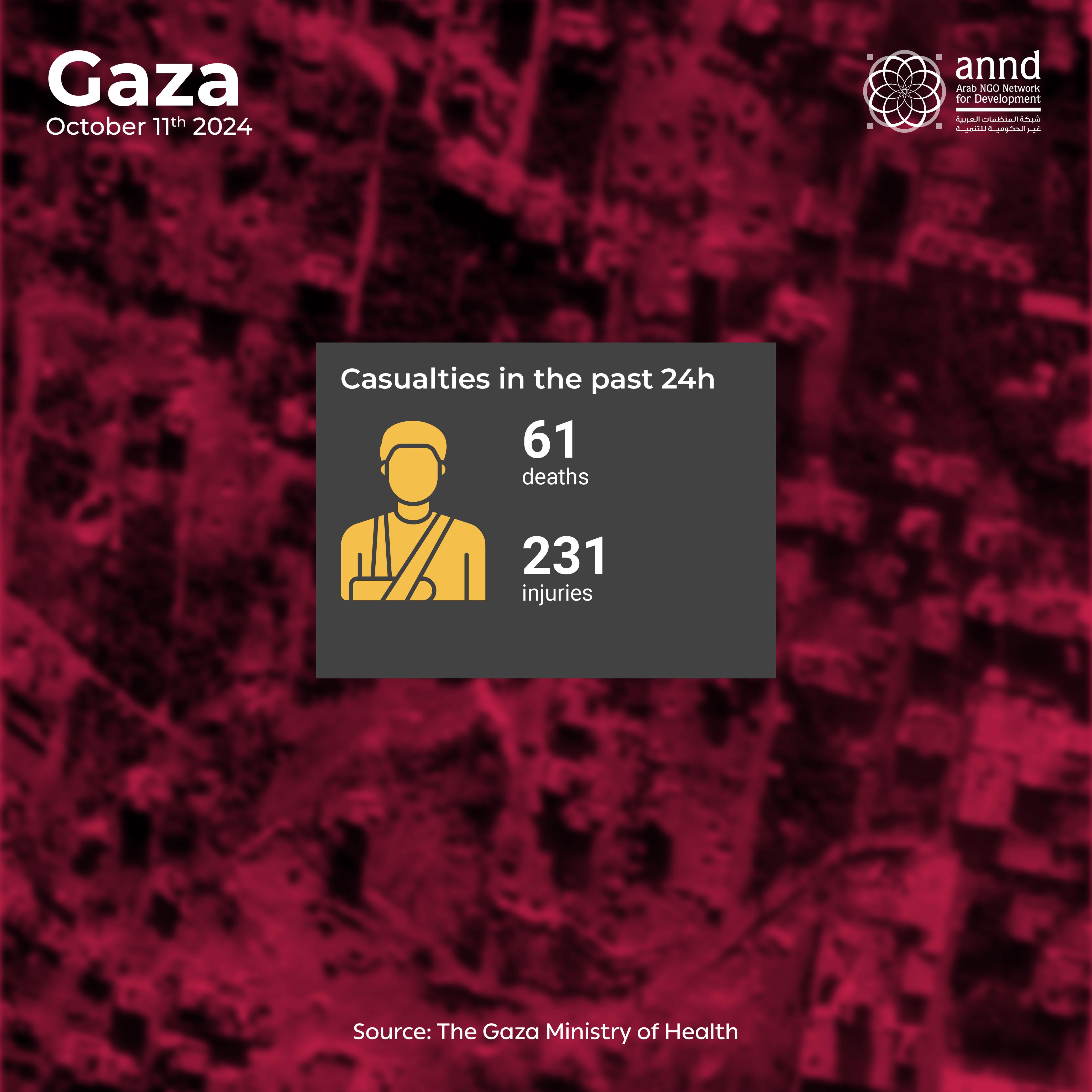
The World Health Organization’s representative in the occupied Palestinian territories expressed grave concern about the safety of patients and healthcare workers amidst escalating hostilities and current evacuation orders that include Kamal Adwan, Al-Awda, and the Indonesian Hospitals in northern Gaza. The WHO announced that more than 14,000 injured people in Gaza are suffering from life-altering injuries requiring years of rehabilitation.
The UN Commission of Inquiry on the Occupied Palestinian Territory and Israel stated that Israel implemented a coordinated policy to destroy Gaza's healthcare system as part of a broader assault on the Strip. The commission added in its report published Thursday that Israel committed war crimes and crimes against humanity, including genocide, through ongoing and deliberate attacks on medical workers and facilities.
Israel criticized the investigation, which concluded that it deliberately seeks to destroy Gaza’s healthcare system and mistreats Palestinian prisoners, calling the findings "shameful." In a statement issued by its mission in Geneva on Friday, Israel strongly rejected these accusations, stating: "This latest report is another blatant attempt by the international commission to delegitimize the existence of the State of Israel and obstruct its right to protect its citizens while covering up the crimes of terrorist organizations."
Nicaragua joined the list of countries denouncing Israel’s actions, announcing its decision to cut diplomatic ties with Israel.
Recent publications
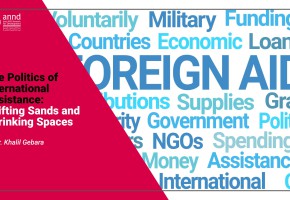
The Politics of International Assistance: Shifting Sands and Shrinking Spaces
